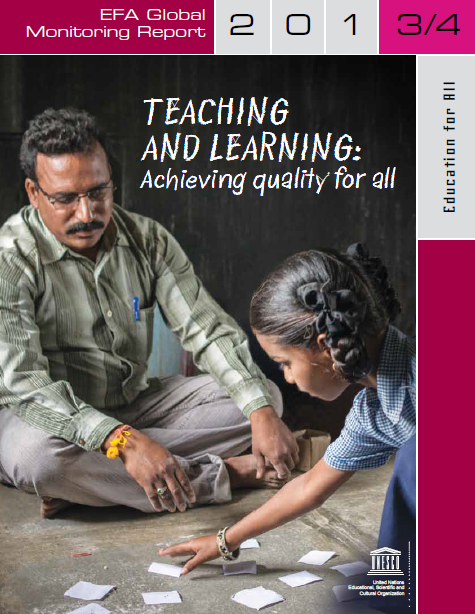
Education For All Global Monitoring Report 2013/4: Teaching and Learning: Achieving quality for all
Publication Year: 2014 / Sources: United Nations Educational, Scientific and Cultural Organization (UNESCO)This year’s EFA Global Monitoring Report vividly underlines the fact that people in the most marginalized groups have continued to be denied opportunities for education over the decade. It is not too late, however, to accelerate progress in the final stages. And it is vital to put in place a robust global post-2015 education framework to tackle unfinished business while addressing new challenges.
Download: English | Khmer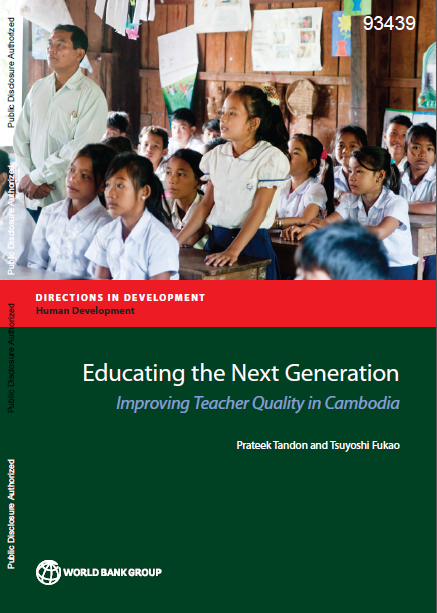
Educating the Next Generation: Improving Teacher Quality in Cambodia
Publication Year: 2015 / Sources: World Bank GroupRealizing education’s potential to spur growth is a priority for Cambodia. The country’s National Strategic Development Plan and Rectangular Strategy call for creating a competitive economy through knowledge and innovation. To lay a strong foundation, the Education Strategic Plan (ESP) focuses on two key issues: achieving universal access to high-quality basic education and promoting equal educational opportunities to increase income and employment.
Download: English | Khmer
Program Based Budget Reform and Community Participation in Primary Education in Cambodia
Publication Year: 2015 / Sources: Save The ChildrenGiven its importance to Cambodia’s future development, the Government has committed increasing budget to the sector. According to Budget Law for 2015, the sector will receive $391 million, representing $61 million up from 2014. This is equivalent to 17.07% of the overall recurrent budget, compared to 15.5% in 2013 and 16.2% in 2014.
Download: English | Khmer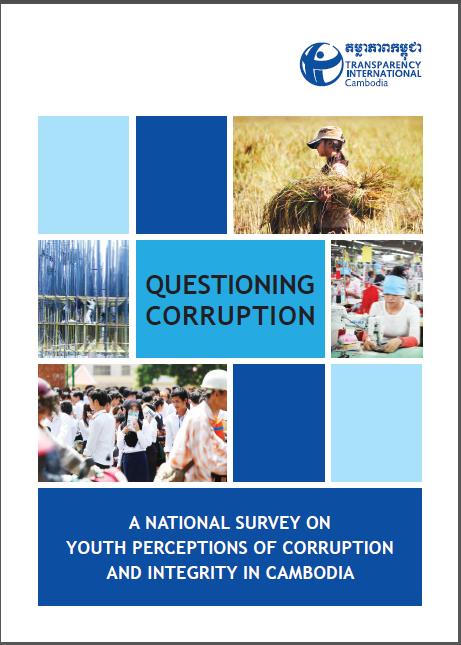
Questioning Corruption: A National Survey on Youth Perceptions of Corruption and Integrity in Cambodia
Publication Year: 2015 / Sources: Transparency International CambodiaIn Cambodia 65 per cent of the population are under the age of 30, and more than 30 per cent are youths. Consequently, ensuring youths are more engaged in society is vital for campaigns to promote integrity and eradicate corruption. The Youth Integrity Survey is designed to understand and quantify attitudes to – and perception of – integrity and corruption among this key demographic. This nationally representative survey, the first of its kind, surveyed 1,200 people aged 15 to 30 nationwide. The results can provide evidence and data to government bodies and other organisations looking to deepen their understanding of youths and identify key areas for directing anti-corruption initiatives.
Download: English | Khmer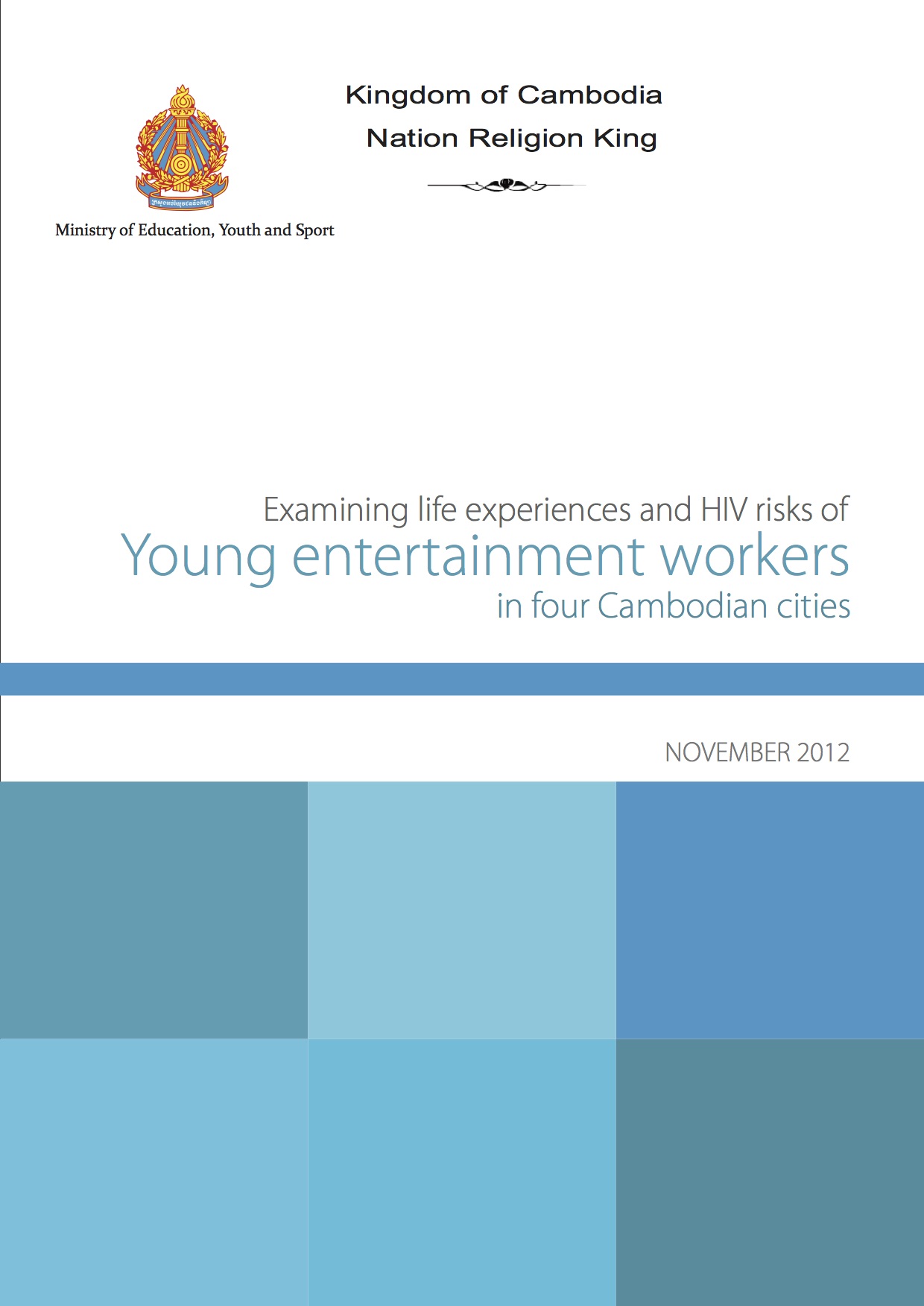
Examining life experiences and HIV risks of Young entertainment workers in four Cambodian cities
Publication Year: 2012 / Sources: Ministry of Education, Youth and SportAlthough Cambodia has made significant strides in reducing HIV prevalence, from 2.1% in 1998 to an estimated 0.8% in 2011, there remain pockets of high risk, particularly among entertainment workers (EWs—direct and indirect sex workers who are collectively referred to as EWs), men who have sex with men (MSM), transgender (TG), and injecting drug users. Of note, many members of these most-at-risk populations are young. Globally, young people—defined by the United Nations as 15-24 year olds—account for 40% of all new HIV infections. High risk behaviors, laws and policies that exclude young people from accessing sexual health care and HIV related services, and the lack of age appropriate sex and HIV prevention education puts young people at increased risk of HIV infection. According to a recent National AIDS Authority (NAA) report, a minority of young people in Cambodia have comprehensive knowledge of HIV. Further, although sex by the age of 15 is relatively uncommon the 2010 MARYP survey reveals pockets of high risk, with limited use of condoms in sweetheart relationships.
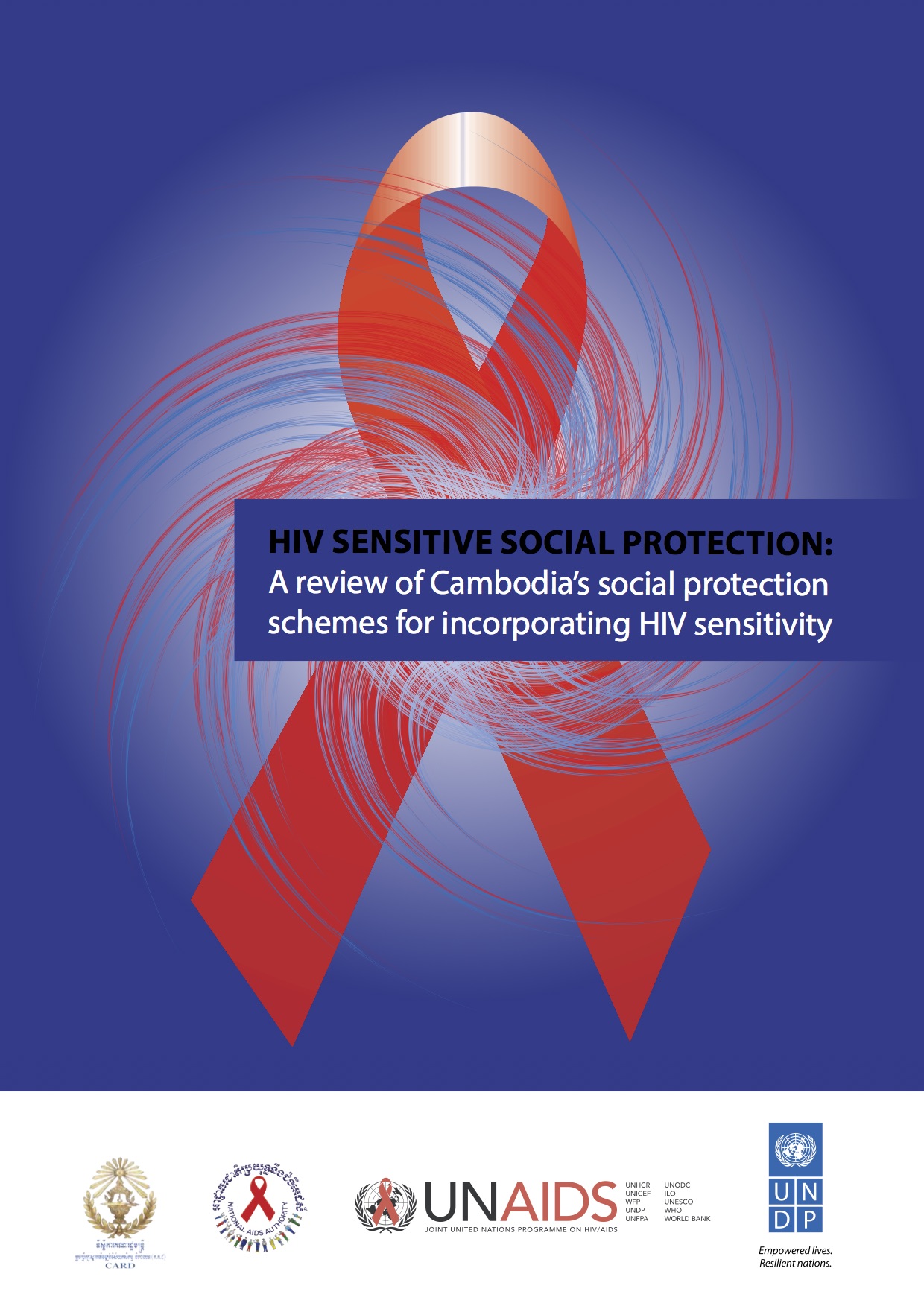
A review of Cambodia’s social protection schemes for incorporating HIV sensitivity
Publication Year: 2013 / Sources: UNDP CambodiaWhile Cambodia has successfully reduced the aggregate level of HIV infection through committed government leadership, effective policies, and strong civil society engagement, HIV is still directly affecting more than 60,000 households across the country. Based on the national average household size of 4.7, this amounts to at least 280,000 individuals, or more than 2% of Cambodia’s total population, who may belong to marginalized sections of society.
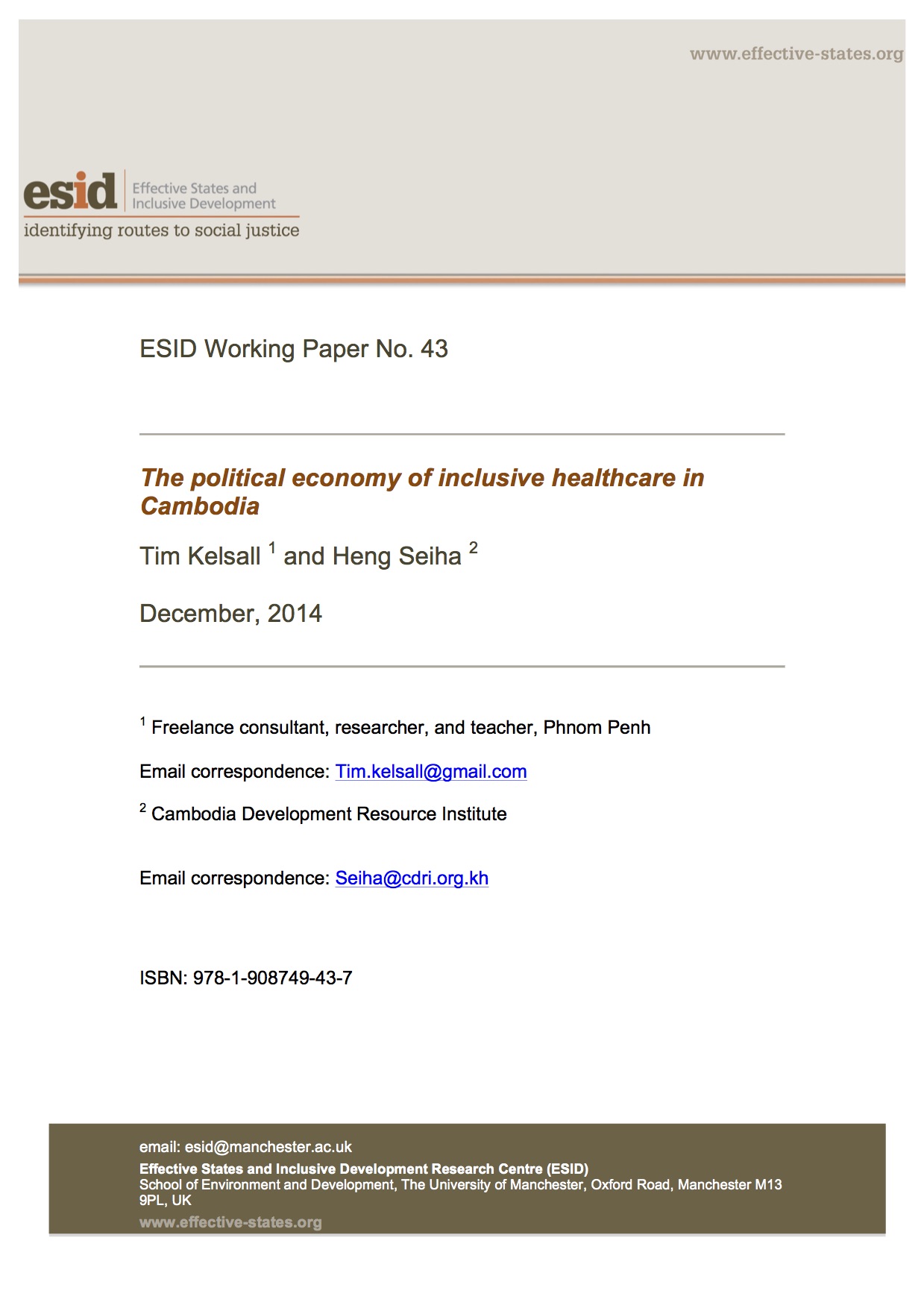
The political economy of inclusive healthcare in Cambodia
Publication Year: 2014 / Sources: Effective States and Inclusive Development Research Centre (ESID)Over the past 15 years, Cambodia has made significant strides in expanding effective access to free healthcare for poor people, thanks largely to ‘Health Equity Funds’ (HEFs), a multi-stakeholder health-financing mechanism. HEF operators have helped expand access, incentivise health staff, and lobby on behalf of poor patients. However, despite their successes, they have been unable convincingly to address some of the deeper-seated problems of the Cambodian health system, such as under-resourced facilities, underpaid, poorly qualified staff, and a burgeoning private sector. This paper explains this state of affairs as a product of Cambodia’s ‘political settlement’, in which relatively successful multi-stakeholder initiatives exist as ‘islands of effectiveness’ in a sea of rent-seeking and patronage. While such islands may currently be the best solution available for poor people, the deeper problems are unlikely to be solved without a shift in the political settlement itself.
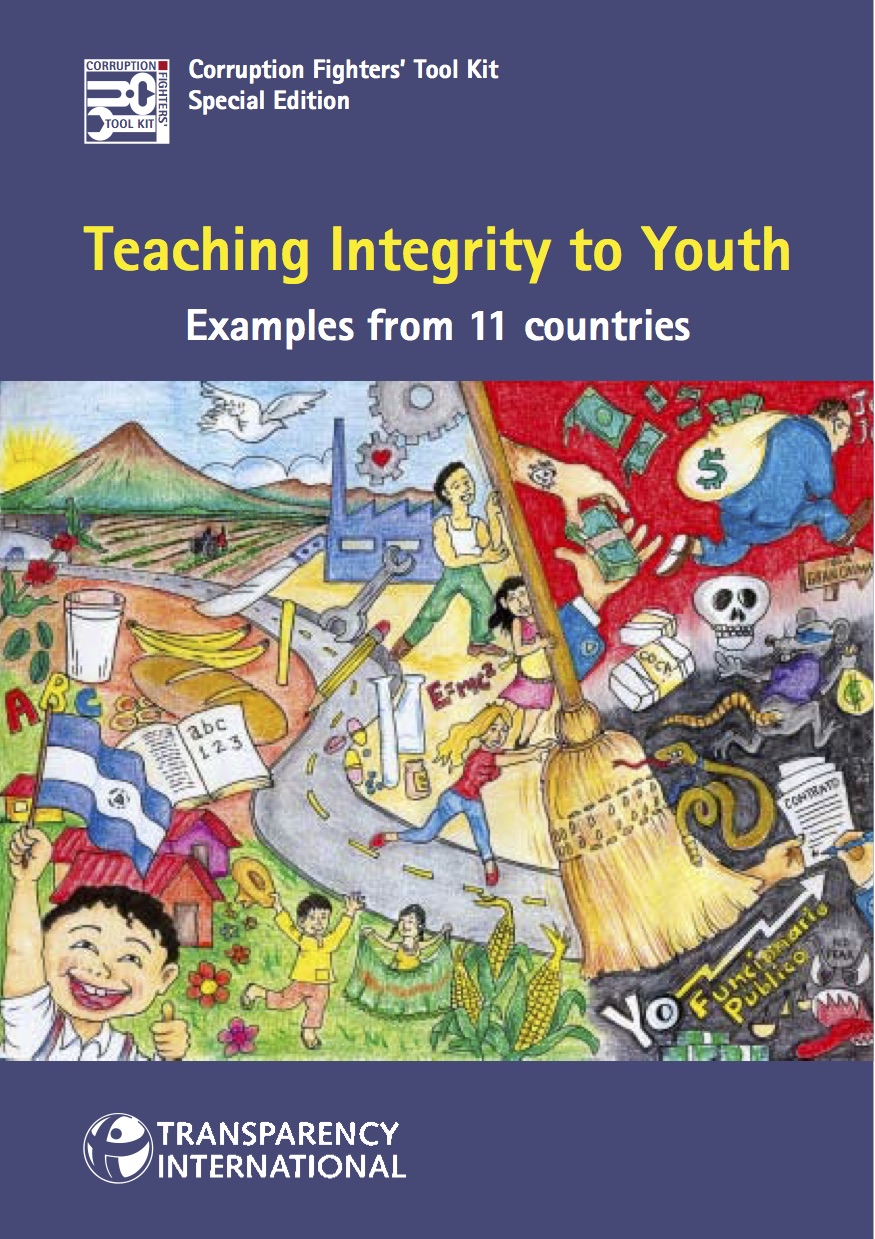
Teaching Integrity to Youth
Publication Year: 2004 / Sources: Transparency InternationalThe Transparency Task Force (TTF) a working group consisting of staff of the Center for Social Development and the Ministry of Education, aims at strengthening the moral values of school students through integrating accountability and good governance concepts into school curriculum. To this end, teacher guide books for subjects including Khmer language, civic education, home economics and history, from grades one to twelve, have been developed, and teachers have been trained in using them. So far, 6,000 teachers have been trained in 19 provinces and cities in Cambodia between 1999 and 2002. This project has been implemented over a large scale, reaching out through a systematic training process. It illustrates a flexible and creative approach to developing ethical education tools to compliment existing teaching materials.
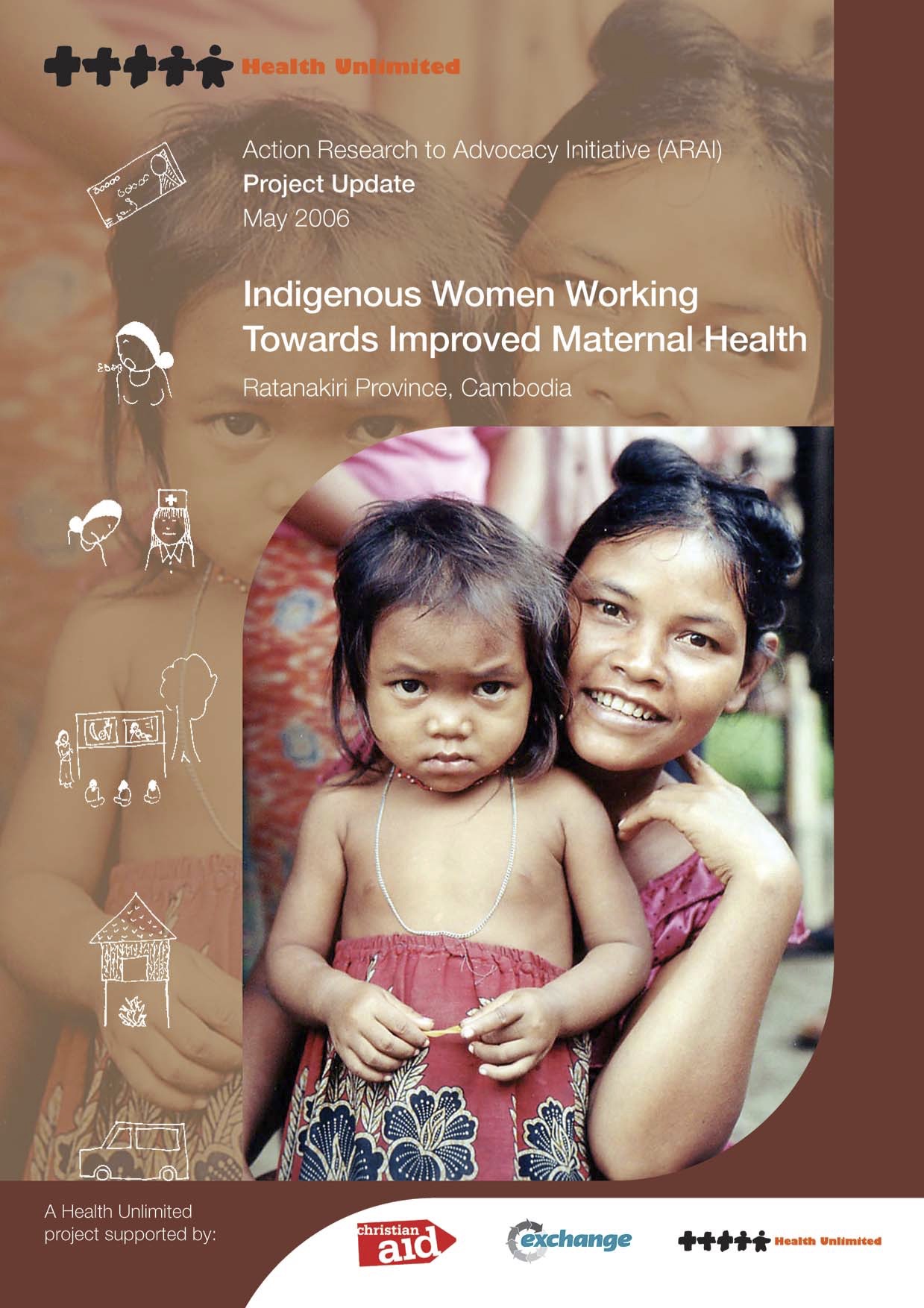
Indigenous Women Working Towards Improved Maternal Health
Publication Year: 2006 / Sources: Action Research to Advocacy Initiative (ARAI)The Action Research to Advocacy Initiative (ARAI) forms part of a process to establish a common advocacy agenda across Health Unlimited projects worldwide. After consultation with Health Unlimited country managers in Summer 2004, it was agreed to focus on access to maternal health care services as a common issue across many of our programmes. Indigenous communities in Ratanakiri, Cambodia, where Health Unlimited has worked for 14 years, were selected to initiate the ARAI. The project aims to tackle the barriers indigenous communities face in accessing maternal health services through the development and implementation of an inclusive advocacy strategy.
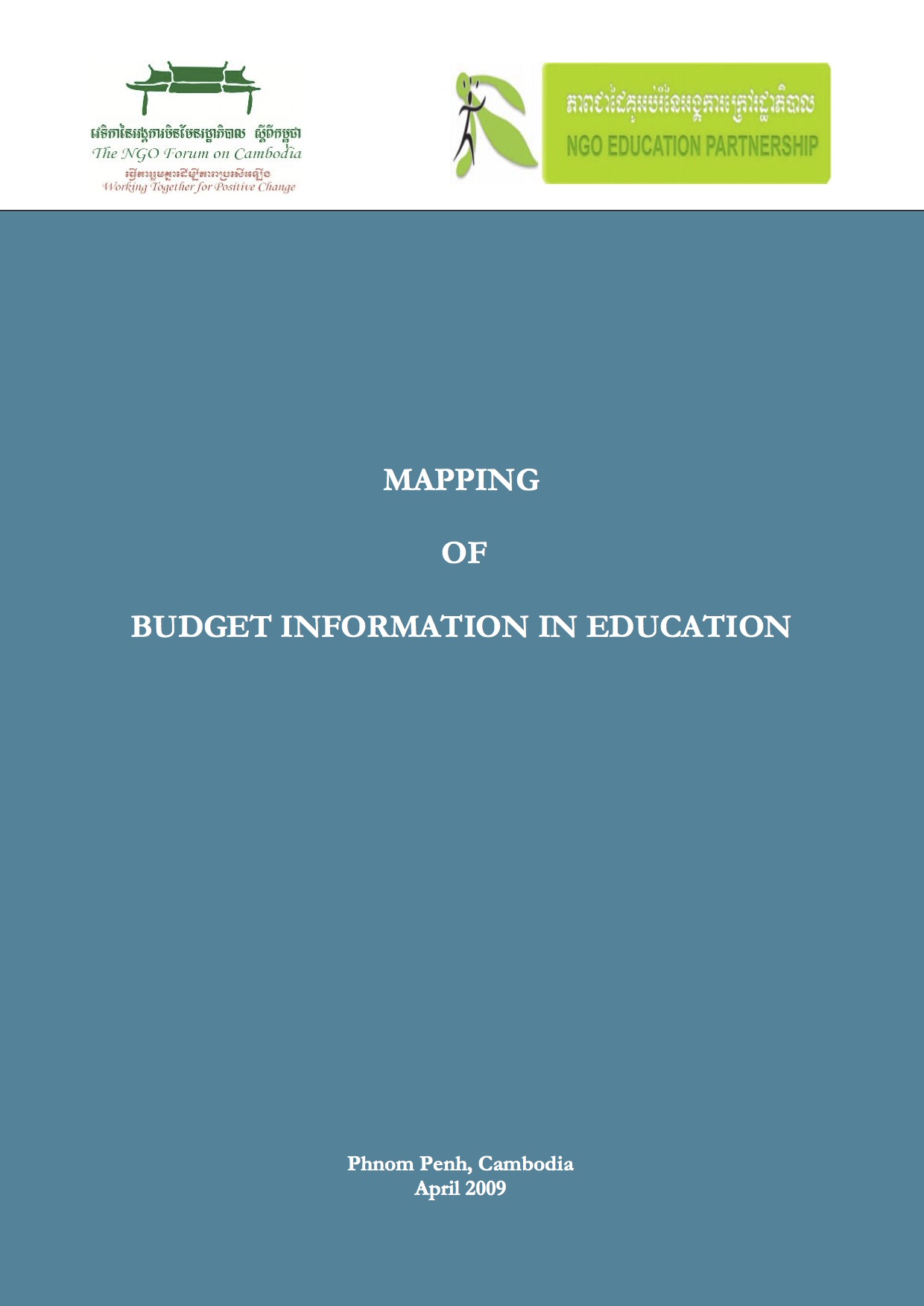
Mapping of Budget Information in Education
Publication Year: 2009 / Sources:This budget information mapping exercise in education sector was conducted in the period from December 2008 to February 2009. It seeks to provide a comprehensive overview of all the publicly available documents related to planning and budgeting in education sector. Its finding are expected to assist NGOs working in the sector to better understand its planning and budgeting process which in turn will enable them to ensure that their programs are complementary to the efforts of the Royal Government of Cambodia (RGC).
